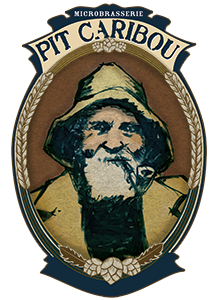MICROBREWERY
Located at the heart of L’Anse-à-Beaufils, a picturesque fishing village close to Percé on the Gaspé Peninsula, Pit Caribou opened its doors back in 2007, and quickly made a name for itself as a brilliant, creative and innovative enterprise.
If you’ve visited the microbrewery in the past, you’ll have seen first hand that although we’ve grown exponentially since 2007—modifying our facilities time and time again to accommodate our growing company, opening pubs around the province, and creating hundreds of beers—we’ve always managed to preserve our Gaspésian roots and family values, and we’ve never once compromised on the quality of our brews.
Planning a trip to the microbrewery?
You’ll be blown away by the wide-ranging beers available on tap!

